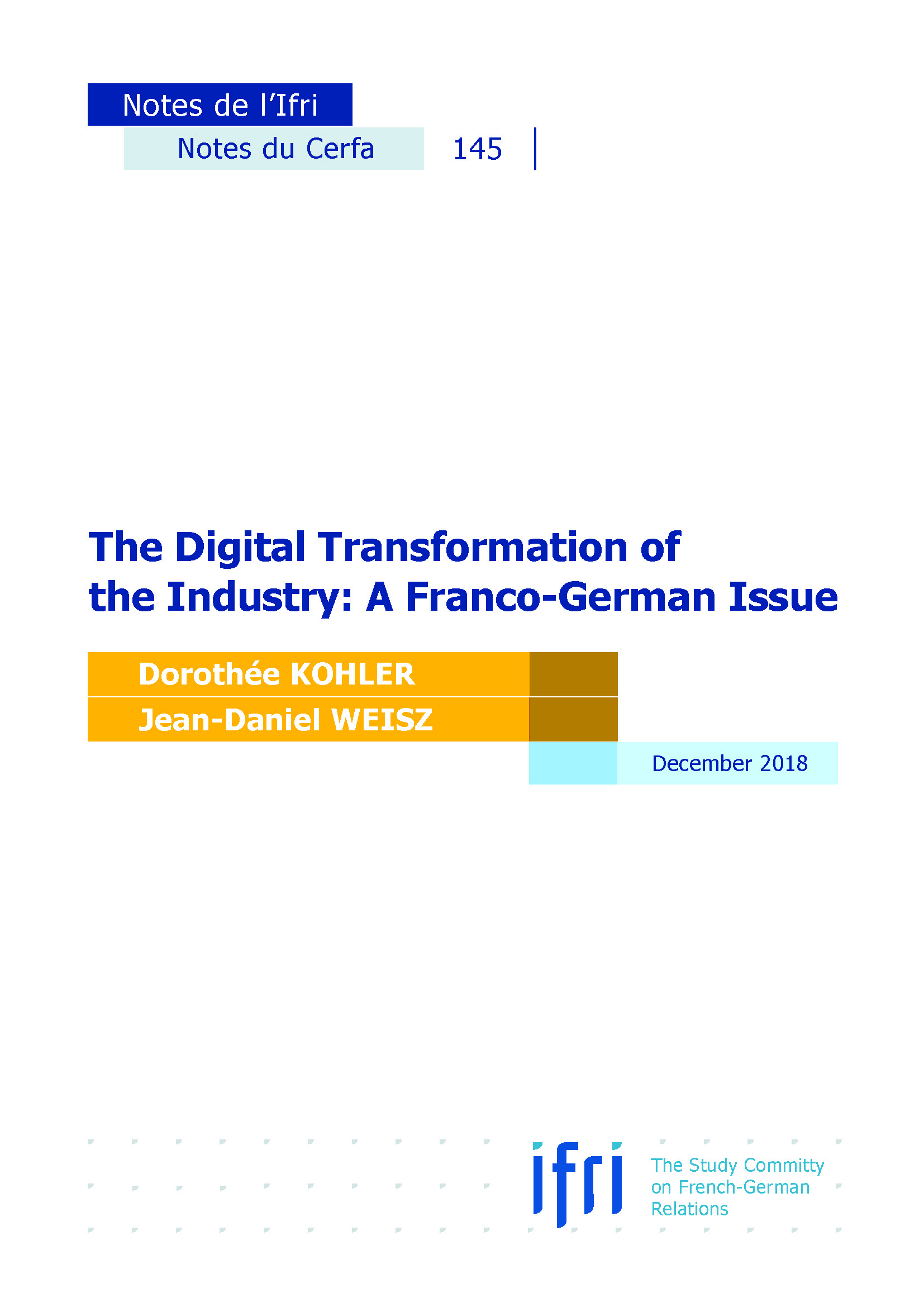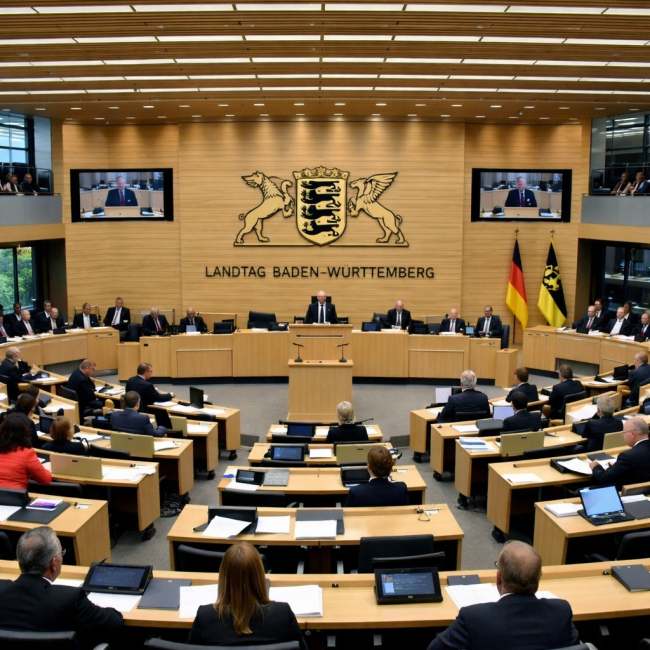Digital Transformation of the Industry: The Franco-German Challenge

The issue of the digital transformation of the industry provoked in France as in Germany the return of the state and the introduction of a subsidiary industrial policy. Feeling threatened in its industrial leadership, Germany mobilized its resources through industry 4.0 by building a vision around the concept of “cyber-physical system” before developing in each Land an accompanying offer. France has forged the concept of the industry of the future by following a logic of modernization of the production tool, reinforcing particularly the automation and building on the integration of new technological bricks.

Both countries now have an accompanying infrastructure in their respective territories. The stakes of the 4.0 industry for production systems, work organization, trades, skills, and employment are anticipated through dialogue and consultation processes.
But beyond the limits of each plant, the digitalization of industry will radically change the distribution of power within the branches and streams between suppliers, subcontractors and ICT providers. This issue culminates in the rise of industrial service platforms that will become an essential infrastructure for the economy. However, the scale effects of these platforms are largely captured by the infrastructure providers dominated by the GAFAM (Google, Apple, Facebook, Amazon, and Microsoft).
Facing these challenges, the Franco-German cooperation can intensify around three key axes: the regulation of platform players to build a competitive market, the development of the levers of relational competitiveness and common thinking and action on the future of work.
This publication is also available in French: Transformation numérique de l'industrie : l'enjeu franco-allemand.
Download the full analysis
This page contains only a summary of our work. If you would like to have access to all the information from our research on the subject, you can download the full version in PDF format.
Digital Transformation of the Industry: The Franco-German Challenge
Related centers and programs
Discover our other research centers and programsFind out more
Discover all our analysesThe 2026 State Elections in Baden-Württemberg: First Test For Chancellor Merz's Federal Government?
The state election in Baden-Wuerttemberg in March 2026 will be the first major test of public opinion for Chancellor Friedrich Merz's federal government. At the same time, Baden-Wuerttemberg is one of the federal states that—as an important location for the German automotive industry and its suppliers—is particularly affected by the transformation policy driven by climate change and the international conflict constellation.
Bundeswehr: From Zeitenwende (historic turning point) to Epochenbruch (epochal shift)
The Zeitenwende (historic turning point) announced by Olaf Scholz on February 27, 2022, is shifting into high gear. Financially supported by the March 2025 reform of Germany’s “debt break” and backed by a broad political and societal consensus to strengthen and modernize the Bundeswehr, Germany's military capabilities are set to rapidly increase over the coming years. Expected to assume a central role in the defense of the European continent in the context of changing transatlantic relations, Berlin’s military-political position on the continent is being radically transformed.
Merz’ European Policy-making: The End of the ‘German Vote’?
Friedrich Merz’s European ambition is to turn Germany, long seen as hesitant into a leading actor within the European Union (EU). To that end, he has pledged to end the “German vote,” a phenomenon that epitomizes the paradox of a country both indispensable and frequently absent from European decision-making.

Securing critical raw material (CRM) value chains – a prerequisite for Europe’s technological resilience
At the heart of economic security, technological resilience is a backbone of the European Union’s (EU) competitiveness. The EU’s energy and digital transitions depend on critical raw materials (CRM).










